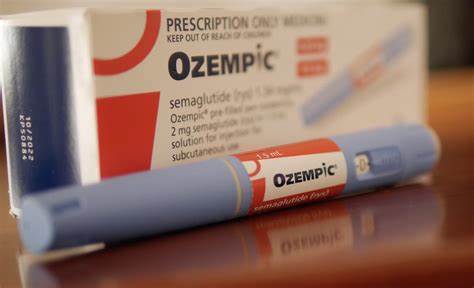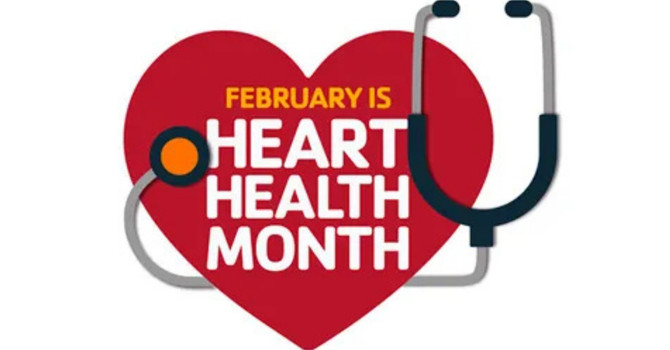
As a mom, wife, and a health and wellness enthusiast, and a passionate advocate for natural health, I often find myself in a tug-of-war between the ideal and the realistic. The latest buzz in the health world revolves around Ozempic, Semi-G, and GLP-1 products, and I must admit, my initial instinct leans towards skepticism.
Why? Because I love all things "natural", and traditionally don't love band-aid medicine for a symptom. I believe in getting our necessary vitamins from clean, wholesome, organic real food. I value the benefits of walking 10,000 steps a day, drinking 8 glasses of water each day, enjoying 8 hours of uninterrupted sleep, reducing and avoiding stress, daily prayer and gratitude journaling, 10 minutes of grounding and 20 minutes/day of meditation, and maintaining a balanced workout routine with both cardio and strength training, and..... I hope you see my point ;)
We live in a world that "doing all the ideal things" can be hard, difficult, and truly impossible. I have YET to find the human doing "everything perfectly" and the person that maintains optimal health or even somewhat balanced health while navigating life's demands.
Life, especially in the summer, rarely adheres to a consistent routine. As a mom (or dad), balancing these ideals with the practicalities of daily life can be challenging. This reality check brings me to an important consideration: finding a reasonable balance between what’s ideal and what’s achievable within our 24-hour days and 7-day weeks, especially as it comes to a healthy lifestyle.
The Struggle is Real
When it comes to weight loss, metabolic health, and an individual's overall health... I’ve seen firsthand how some patients, despite making significant lifestyle changes and adhering to a healthy diet, and sticking to a good fitness program, struggle to see any change on the scale or in body composition. These individuals often feel metabolically stuck, despite doing everything right for their health. It’s frustrating and disheartening.
Additionally, we in America do have a significant problem with our overall health. Insulin Resistance and Type II diabetes is sky-rocketing and is complicated by our growing waistlines fuels cardiovascular disease, arthritis and even cancer. Please note that 1/3 of the "normal weight" population is likely in the pre-diabetic category, so this isn't entirely about our "waistlines". So while we can split hairs over the various diets, and weight loss trends and fads on the market there is no denying, we have a problem, and the solution we need to getting healthier is to convert our excess fat to muscle, improve blood sugar regulation, and clean up our diets. HOW we do that, and what the BEST way to do that... varies from individual to individual.
The Role of GLP-1 Products
This is where GLP-1 products, such as Ozempic and Semi-G, come into play. While my natural inclination is to favor holistic approaches, I also recognize that there is a time and place for these medications, especially for patients with elevated BMI, high insulin levels, A1C above 5.6, and increased body fat. BMI, although not a perfect indicator of health (which btw, my own BMI classifies me as overweight yet I know I am a very healthy individual), can highlight cases where intervention might be necessary.
Positive Outcomes
In my practice, I’ve observed many patients who have opted for GLP-1 drugs and are very pleased with the results. These medications have led to significant health improvements, reflected in their biomarkers and lab results. The most common side effect I’ve noticed is a sluggish gastrointestinal system, which can often be managed with proper guidance and support. I have also heard of 1 case of pancreatitis, and that sadly is a by-product of many rapid weight loss programs, even other medically supervised weight loss programs.
Natural Alternatives
The Benefits of Akkermansia for Gut Health
-
Enhancing Gut Barrier Function: Akkermansia muciniphila has a unique ability to break down mucin, a component of the mucus layer in the gut. By doing so, it stimulates the production of more mucin, thereby strengthening the gut barrier. This barrier is essential for preventing pathogens and harmful substances from entering the bloodstream, reducing the risk of inflammation and associated diseases.
-
Balancing the Microbiome: A healthy gut microbiome is characterized by a diverse array of microbial species. Akkermansia contributes to this diversity by promoting a balanced microbial environment, which is crucial for overall gut health and function.
Combating Insulin Resistance
Insulin resistance is a condition where cells in the body become less responsive to insulin, leading to elevated blood glucose levels and an increased risk of type 2 diabetes. Akkermansia muciniphila has shown promise in addressing this metabolic disorder:
-
Improving Glucose Metabolism: Studies have demonstrated that higher levels of Akkermansia muciniphila are associated with improved glucose metabolism. This bacterium helps in modulating gut hormones and promoting the secretion of GLP-1 (glucagon-like peptide-1), which enhances insulin sensitivity and glucose uptake by cells.
-
Reducing Inflammation: Chronic low-grade inflammation is a key driver of insulin resistance. Akkermansia’s ability to reinforce the gut barrier and prevent the translocation of pro-inflammatory substances into the bloodstream can significantly reduce inflammation, thereby improving insulin sensitivity.
Nature’s Natural Ozempic
Ozempic (semaglutide) is a medication commonly prescribed to manage type 2 diabetes by mimicking the effects of GLP-1, leading to improved insulin sensitivity and weight loss. Interestingly, Akkermansia muciniphila appears to offer similar benefits naturally:
-
Weight Management: Research has shown that Akkermansia muciniphila can aid in weight management by regulating fat storage and improving energy metabolism. It influences the release of appetite-regulating hormones, helping to reduce food intake and promote a healthy body weight.
-
Metabolic Health: By enhancing GLP-1 secretion and improving insulin sensitivity, Akkermansia muciniphila supports metabolic health in a manner akin to Ozempic, but without the need for pharmaceutical intervention.
Boosting Akkermansia Levels Naturally
To harness the benefits of Akkermansia muciniphila, consider the following strategies to boost its levels in your gut:
-
Diet: Incorporate foods rich in prebiotics, such as fruits, vegetables, whole grains, and nuts. Prebiotics serve as food for beneficial gut bacteria, including Akkermansia.
-
Polyphenols: Foods high in polyphenols, like berries, green tea, and dark chocolate, have been shown to promote the growth of Akkermansia.
-
Probiotics: While specific Akkermansia probiotics are not yet widely available, consuming a diverse range of probiotics can help maintain a balanced microbiome that supports the growth of beneficial bacteria.
Research Insights
- A study published in the journal Gut found that higher levels of Akkermansia muciniphila were associated with lower body weight, reduced body fat, and improved glucose metabolism in overweight and obese individuals .
- Another study indicated that dietary interventions, such as a calorie-restricted diet, could increase the abundance of Akkermansia muciniphila and were linked to more significant reductions in BMI and improved metabolic markers
For those who prefer a natural route, we offer several alternatives that promote the body’s own production of GLP-1. One of these is called Gut Feeling by Integrative Peptides. Gut feelings include Akkermansia, the bacterial flora linked to natural GLP-1 production along with peptide BPC-157. This is a powerful combination for those seeking a natural alternative, OR, have completed their GLP-1 prescription and have attained their goal weight and want to maintain. Another product is NutriDyn's Ultrabiotic Akkermansia Plus, and 1-2 cap/day probiotic blend. We do carry both of these products in office.
I do believe in getting baseline labs and a consultation with a qualified provider if you consider using any GLP-1 medication. Also, I'm obviously biased to functional medicine and I would be happy to have a consult with you, discuss labs most people should consider yearly, to monitor their overall health, review those labs findings with you, and together, work on a realistic plan that makes the most sense for you for your stage in life.
As we navigate through summer’s chaotic schedules and the daily demands of life, it’s crucial to find what works best for each individual. Whether it’s through natural methods or medical intervention, the goal remains the same: to achieve and maintain optimal health and wellness. I would advise anyone seeking a holistic approach to your health to consider the following labs and baselines before beginning a weight loss program, and frankly, it should be considered a "Get Health and Optimization Program".
Baseline Laibs and Metrics
- Complete Thyroid (TSH, T4, T3, TPO, TG antibodies)
- General Health Panel (CBC, CMP)
- Uric Acid
- Free and Total Testosterone
- Estradiol
- Progesterone
- Lipids
- A1C
- Fasting Insulin
- Blood Pressure reading, Resting HR, and pulse
- Biometric Weight scale - can start basics using a scale like this (https://a.co/d/gjX58Xv) then you can see and track skeletal muscle vs body fat trends while on your program.
- Consider a wearable like a Garmin or a Whoop Strap. Make sure your garmin has to following specs (HRV, VO2, Sleep Coach, Steps, Hydration, and Stress)



